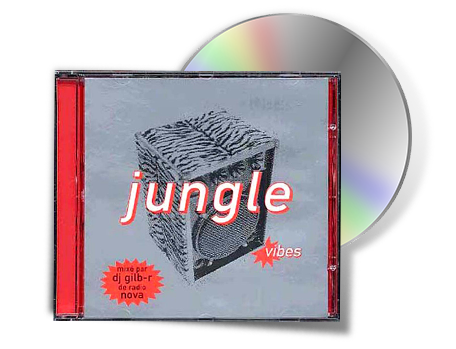

Two producers who had worked with rapper MC Solaar released their first maxi single, Tribulations Extra Sensorielles. Philippe Zdar and Hubert Boombass, known as La Funk Mob, offered a timeless trip-hop sound that pulled from both jazz and funk. Signed by the British label Mo’ Wax, a major player in the genre, the duo was proof that the French were now being taken very seriously across the Channel. A few years later, the two musicians decided to tackle a more house-oriented project, Cassius.
After Fnac Music Dance Division closed down, Eric Morand and Laurent Garnier started their own independent record label, F Communications, with help from the Belgian distributor PIAS (Play It Again Sam), who gave them free rein on the project’s artistic direction. The letter “F” not only referred to the label’s French roots but was also a way to advocate the love of music. Their first slogan, “After E Comes F,” meant that after drugs (“E” was short for ecstasy) came music. A young graphic artist, Geneviève Gauckler, was behind the label’s beautifully designed album art. F Communications’s first artists, Ludovic Navarre (also known as St Germain), Shazz, and Scan X, were already a part of Fnac’s catalogue. Other artists were soon added to the roster, including Nova Nova, Lady B, Juantrip’, and Aqua Bassino. They all agreed to enter into an exclusive contract with the label, which gave it a family-like feel. F Communications also fought for the recognition of electronic music culture at a time when government action against raves was at its peak. In October 1994, Laurent Garnier published Shot In The Dark, France’s first-ever techno album. However, F Communications didn’t want to just make music for the dancefloor; it also released productions meant for “home” listening. A downtempo compilation, Musique pour les plantes vertes, was published in 1996, and unconventional artists like A Reminiscent Drive, Ready Made, and Avril were added to the catalogue. The label’s motto was “Electronic With No Limit.” In 1999, it released its biggest hit, the maxi single “Flat Beat” by Mr Oizo. Two million copies were sold worldwide. Due to the record industry crisis, the label went on hiatus in 2008. It nevertheless continues to enjoy an excellent reputation as the first label to put out high-quality French electronic music.
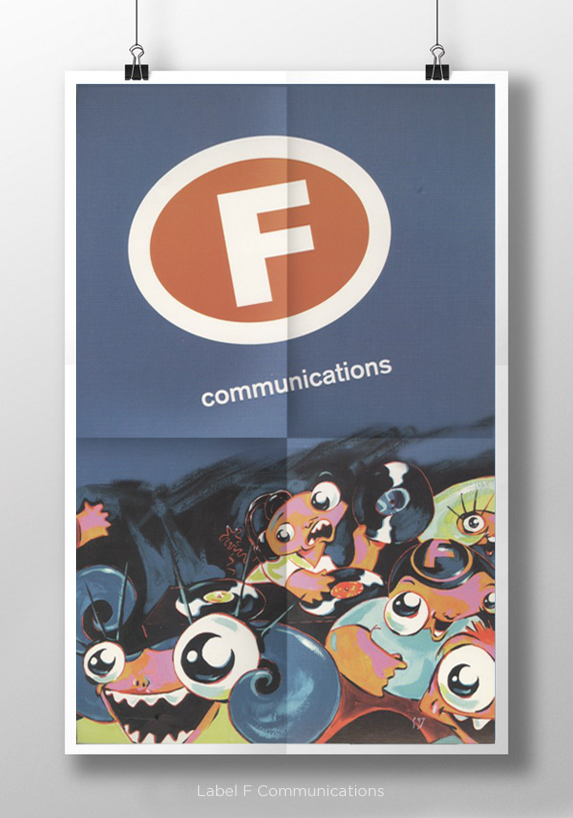
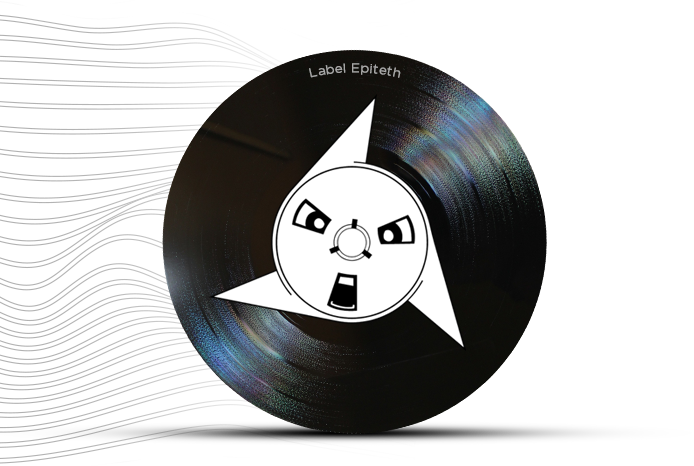
Logo for the label Epiteth
Many electronic labels were founded in 1994 in France. There were even companies entirely dedicated to hardcore, which was booming at the time. A notable example was Epiteth, promoted by the DJ Laurent Hô. He laid the foundations for a very industrial-sounding kind of music, bringing a French sensibility to the hardcore scene that was on the opposite end of the spectrum from Dutch gabber music, which was very popular as well as deliberately more joyful and overproduced.
David Guetta, a DJ and artistic director in several Parisian clubs, including Le Queen, Le Folies Pigalle, Les Bains Douches, and Le Palace, released his first house/garage maxi-single Up and Away in July. The track featured the Chicago DJ and singer Robert Owens, one of the genre’s most iconic voices. It was a one-shot effort, however. David Guetta returned to production only after 2001 with music that was geared towards a much wider audience.
The Bastille district in Paris became the epicenter for the electronic scene, due in large part to the presence of several specialized record stores. A “golden triangle” marked off by Rue de Charonne, Rue des Taillandiers, and Rue Keller was home to the stores Bonus Beat/BPM, TSF, and Techno Import. It also contained the French branch of the legendary indie store Rough Trade, which was founded in London at the end of the 1970s. By 1994, electronic music was gaining more and more ground in the store; rock was moved upstairs to leave electronic the entire ground floor. Running the counter were musicians Arnaud Rebotini and Ivan Smagghe, who later went on to form the electro duo Black Strobe. Smagghe didn’t have the best reputation; many customers didn’t appreciate his laid-back attitude and arrogant demeanor. Nevertheless, many of the artists who would later found the “French Touch” movement visited the store regularly. As was the case in other record stores, the days when new shipments came in were especially popular. Many Paris DJs showed up as soon as the doors opened to make sure they didn’t miss any hidden gems.
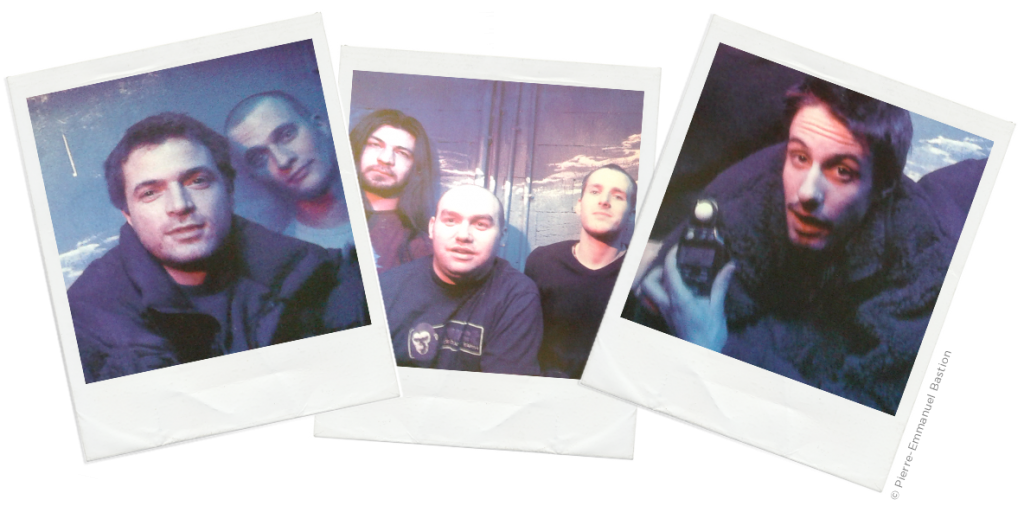
The Rough Trade team at a Respect party at Artefact
(left to right: Philippe Zdar, Georges Issakidis, Arnaud Rebotini, Jêrôme Mestre, DJ Cam, and Ivan Smagghe).
In the mid-1990s, the Internet was still in its infancy, and social networks were non-existent. As a result, these stores constituted important meeting places for members of the electronic scene outside of the tumult of the club environment. Many friendships and musical projects were started around the record racks. Music stores were also a place to learn about upcoming events and pick up all-important flyers. Outside of Paris, similar bastions for electronic music were cropping up, such as Sonido del Futuro in Toulouse, Pinguin’s in Montpellier, Smart Import in Marseille, and Indépendance Records in Lyon.
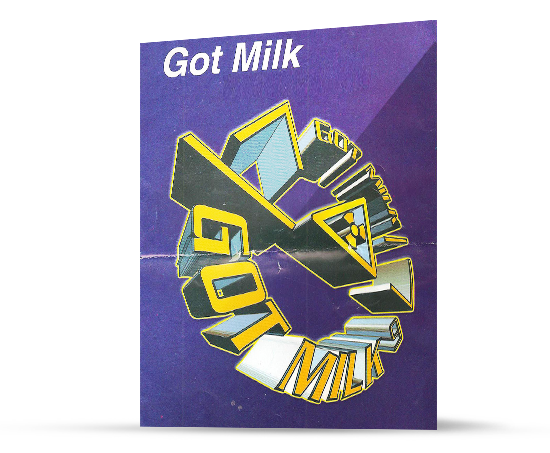
Got Milk flyer
While rave culture had already swept through the Paris and Rhône-Alpes regions as well as Brittany and southern France, eastern France and its capital Strasbourg witnessed the arrival of Got Milk. The party derived its name from the famous La Laiterie (meaning “creamery” in French) concert hall and cultural center, where the first editions were held. It quickly outgrew the venue and moved to Hall Rhénus, which could host up to 10,000 people. For ten years, Got Milk was a highlight of the Alsatian night scene every six months.
Gilb’r, a DJ who also worked as a programmer for Radio Nova, quickly developed a passion for the new electronic sound coming out of England known as jungle/drum and bass. He released the genre’s first French-mixed compilation, Jungle Vibes, which in reality mostly contained British productions. With the creation of the record label Versatile in 1996, Gilb’r gradually turned from jungle to embrace the house scene as a whole.
